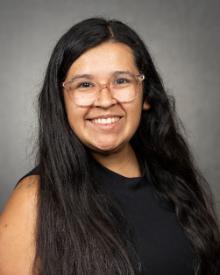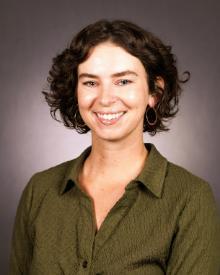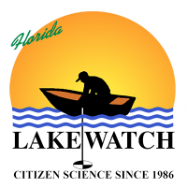
Residential Horticulture
Topics:
- Landscaping & Gardening Classes
- Hot Topics
- Plant Clinic
- Bringing Samples to the Clinic?
- Select this link for Assistance by E-Mail
- Master Gardener Volunteer Program (MGV)
- Florida-Friendly Landscaping™ Program
- Community Gardens
- Plant Doctor (FAQs)
- Plant Profiles (Tom MacCubbin)
- Other Gardening Publications and References
People are helped through classes, seminars, clinics, and workshops. With most of our residents coming from other areas of the country, delivering research based University of Florida information is very important to help them care for their landscapes in an environmentally friendly manner.
Hot Topics
Water Your Lawn Wisely – Day Light Savings Time
- Did you remember to set your irrigation controller to water up to twice a week now that we are in Daylight Savings Time?
- Did you check your irrigation system to see if it needs some adjustment?
Are you applying 3/4" - 1" of water per week? - Do you have a working rain sensor?
Remember, lawns do not guzzle water, they use what they need and the rest is wasted so don't over water your lawn.
Find more information on managing irrigation, see Lawn Irrigation.
Fertilizer "Black Out" Period in Orange County
Get your Spring lawn fertilization done before the end of May. Orange County’s Fertilizer Management Ordinance has a Fertilizer "Black Out" Period from June 1st to September 30th.
Ordinance Requirements in Effect June 1, 2022
| Restricted Season: June 1 - September 30 |
|---|
|
No fertilizer containing nitrogen or phosphorus may be applied in Orange County from June 1 through September 30. |
| October 1 - May 31 |
|---|
|
| Year-round |
|
Residential Horticulture Plant Clinic
Have a question about your lawn, landscape, or houseplants? The UF/IFAS Extension Orange County Residential Horticulture Plant Clinic is here to help. Knowledgeable Master Gardener Volunteers and urban horticulture specialists are available Monday–Thursday, 10:00 AM–5:00 PM, to answer questions in person or by phone. Visit us at 6021 S. Conway Rd. in Orlando, just south of Hoffner Rd., or call (407) 254-9200.
If you are bringing samples to the plant clinic, this may help:
Insect samples should be placed in a jar or other suitable container. Collect more than one specimen if possible. Bring the insect in a plastic or glass container, they can be dead or alive. Insects may be killed and preserved in alcohol. Very small insects may be collected with a gummed tape.
Plant material samples should include flowers, live leaves, and roots if possible. Bring a sample which includes as many features as possible of the plant you want to I.D. or problem you wish to be diagnosed. Use a plastic bag to maintain the moisture of the tissues. Do not add a wet paper towel or water to the plastic bag. Bring it to our clinic office the day you collect it, otherwise keep it refrigerated until you can bring it to our office.
Sod samples should be about 1 foot square with mostly green turf and some brown turf to determine what pest may be eating your yard. Use a plastic or paper bag, shoe box, or any suitable container to bring the sample to our office. The fresher the material is, the easier it is to diagnose the problem.
Soil samples for pH testing can be dropped off at the Extension office at 6021 S. Conway Rd, Orlando, 32812, Monday - Thursday, 10 am to 5 pm. All you’ll need to do is bring a cup of your soil sample in a ziplock bag to Samples are run each Friday and you’ll be notified by phone or email of the results. To get a soil sample follow the instructions here: https://edis.ifas.ufl.edu/publication/SS667.
Soil samples should be removed from several locations in your garden area at a depth of 6"; mix all samples from that garden area in a bucket and provide a pint of soil for analysis including pH (acidity). Do not include debris such as leaves, sticks or large stones in your sample. You can use any kind of paper bag or zip top bag for your sample.
Community Garden
When economic problems loom on the horizon, homeowners often turn to gardening in the backyard to provide fresh vegetables and extend their shopping dollars when they visit the grocery store. Community Gardens are a means of providing a gardening space for those who do not have sufficient space in the backyard or do not have a backyard to grow vegetables. Many well meaning organizations and agencies sometime fail to meet these community needs because they do not understand how to start a successful Community Garden. The information below will answer many questions that are asked when considering the creation of a Community Garden.
What is a Community Garden?
A Community Garden is a shared plot of undeveloped land in which the participants share in both the maintenance and the rewards. Community Gardening has its roots firmly planted in the Liberty Gardens of World War I and the Victory Gardens of World War II.
Where do you start?
A very good beginning would be to determine if there is a group of individuals really interested in creating a Community Garden. Select this link get a copy of the Community Garden Start-Up Guide from the American Community Gardening Association . Also select this link to get a copy of the University of Florida Publication "Starting a Community Garden". You will need both resources to understand the responsibilities of starting a Community Garden.
Who do you contact once you have reviewed the Start-Up Guide and have a committee formed that is interested in starting a Community Garden?
Contact the Orange County Extension Education Center then select this link to get a copy of the "Orange County Community Garden Guide".
How do you get started once you have a committee, a group of interested gardeners, a site, and funding?
Contact the County Cooperative Extension Office. The Cooperative Extension System provides education to enable Community Garden development throughout the state. Cooperative Extension Agents and Master Gardener Volunteers can provide educational assistance for Community Garden projects. An Extension Agent or Master Gardener Volunteer may be available on occasion for a garden site visit to assist community gardeners at key stages of garden development.
Other Gardening References may be selected from the following list:

Clarissa Chairez
Extension Faculty
Master Gardener Volunteer Program Coordinator
E-mail: Master Gardener Volunteer Program, Plant Clinics

Calvin Gardner
Extension Faculty
Residential Horticulture
E-mail: Residential Horticulture, Lawns, Landscapes, School Gardens, Community Gardens
Marie Munoz
Administrative Assistant
Residential Horticulture
E-mail: Residential Horticulture & MGV Administrative Assistant

Dr. Heather Kalaman
Extension Faculty
Florida-Friendly Landscaping™
E-mail: Florida-Friendly Landscaping™, Exploration Gardens
Jeanette Mercado
Administrative Assistant
Residential Horticulture
E-mail: FFL Horticulture Administrative Assistant
Additional Links
- EDIS: Publications
- Featured Creatures
- Florida Automated Weather Network (FAWN)
- Florida Extension Office and Research Center Locator
- Florida-Friendly Landscaping™ Program
- Florida Master Gardener Program
- Florida Wildlife
- Junior Master Gardener Program
- UF/IFAS Extension Bookstore
- UF/IFAS Home Page
- UF/IFAS Research

